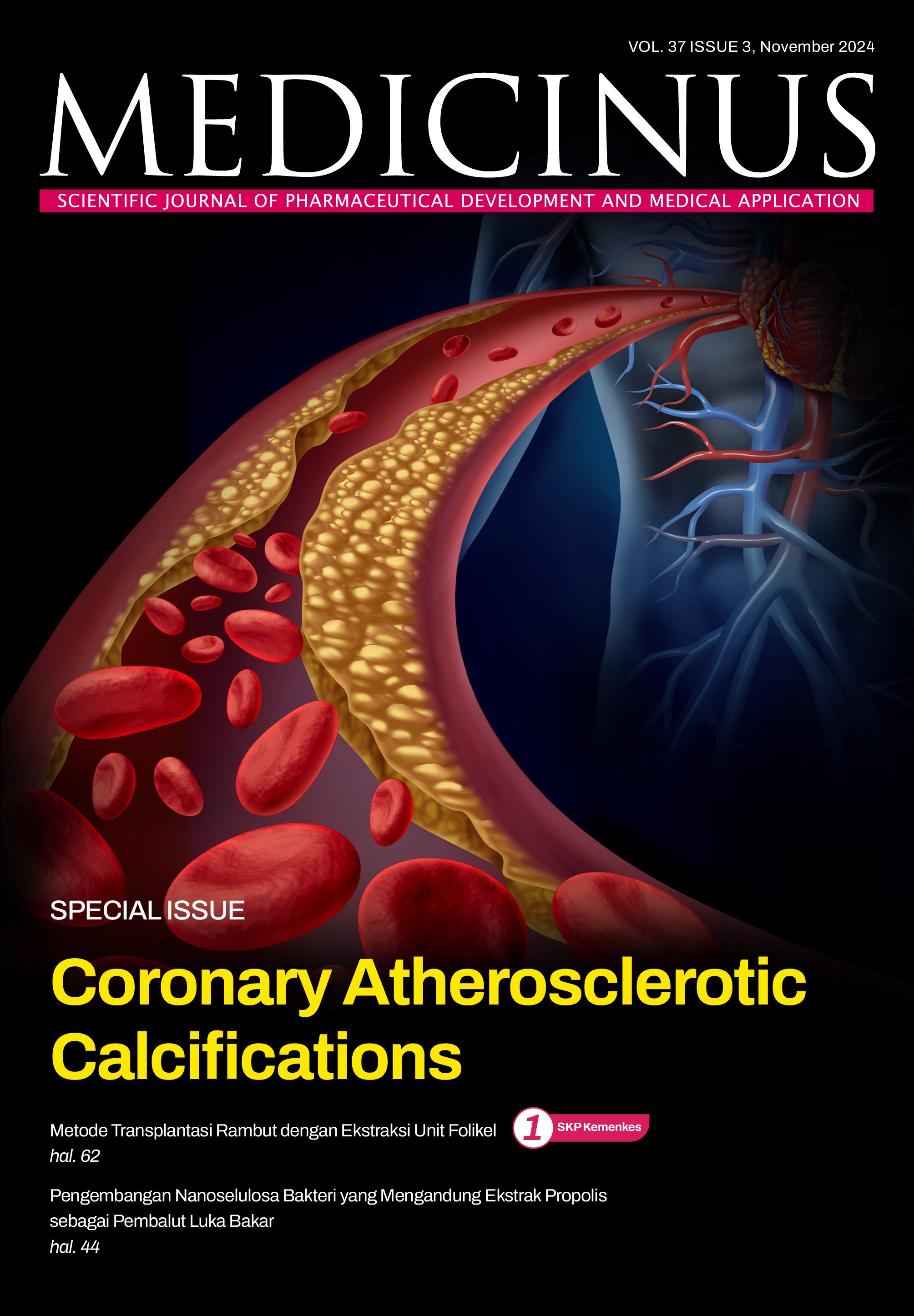Keadilan Bermartabat dalam Akses terhadap Obat: Relevansi, Tantangan, dan Implikasi Kebijakan dalam Sistem Kesehatan Global
DOI:
https://doi.org/10.56951/jd584b81Kata Kunci:
keadilan bermartabat, akses obat, etika sosialAbstrak
Akses terhadap obat-obat esensial yang aman, efektif, dan terjangkau telah menjadi salah satu masalah utama dalam sistem kesehatan global, di mana terjadi ketidakadilan struktural yang mendalam antara negara maju dan berkembang. Tantangan ini tidak hanya menyangkut aspek ekonomi dan distribusi, namun juga berkaitan erat dengan nilai-nilai etika, moral, dan martabat manusia. Artikel ini mengeksplorasi perumusan kebijakan akses obat global dapat diperbaiki dengan menggunakan pendekatan teori keadilan bermartabat.1,2 Analisis teoretis dan praktis tentang bagaimana keadilan bermartabat dapat membantu mengatasi ketimpangan akses terhadap obat akan dibahas secara komprehensif, di mana nilai utama konsep ini adalah kepastian bahwa martabat manusia ditinggikan.. Artikel ini pada akhirnya akan mengusulkan model kebijakan yang responsif terhadap tantangan etika dan sosial, di samping memberikan rekomendasi strategis bagi pemangku kebijakan untuk menciptakan sistem kesehatan yang lebih berkeadilan dan manusiawi.
Unduhan
Referensi
Prasetyo T. Keadilan bermartabat dalam sistem hukum nasional. Yogyakarta: Pustaka Pelajar. 2015.
Prasetyo T. Fundamentals of the theory of dignified justice. Jakarta: UI Press. 2017.
United Nations. International Covenant on Economic, Social and Cultural Rights. Available from https://www.ohchr.org/en/instruments-mechanisms/instruments/international-covenant-economic-social-and-culturalrights , cited October 5th 2024.
Committee on Economic, Social and Cultural Rights (CESCR). General Comment No. 14: The right to the highest attainable standard of health (Art. 12). United Nations Economic and Social Council. Available from
https://www.un.org, cited October 5th 2024.
United Nations. Universal Declaration of Human Rights. Available from https://www.un.org/en/about-us/universal-declaration-of-human-rights, cited October 5th 2024.
World Health Organization. Access to medicines: Making market forces serve the poor. Available from https://www.who.int/publications-detail/access-to-medicines-making-market-forces-serve-the-poor, cited October
th 2024.
Smith RD, Correa C, Oh C. Trade, TRIPS, and pharmaceuticals. Lancet 2017;373(9660):684-91. DOI: https://doi.org/10.1016/S0140-6736(08)61779-1
Ford N, Calmy A, Mills EJ. The first decade of antiretroviral therapy in Africa. Public Library of Science Medicine 2018;7(4):e1000265.
Baker BK. Transcending TRIPS: the hidden costs of extending intellectual property rights to developing countries. Duke Law Journal 2016;45(5):273-315.
Hoen E. The global politics of pharmaceutical monopoly power. Amsterdam: AMB Publishers. 2016.
Shadlen K. Patents, pills, and power: the global fight for medicines. University of California Press. 2017.
Medicines Patent Pool. Expanding access to HIV treatment through voluntary licensing. Available fromhttps://medicinespatentpool.org, cited October 5th 2024.
Ooms G and Hammonds R. Taking up Daniels’ challenge: The case for global health equity. Health and Human Rights 2018;15(2):10-23.
Ravindran TS and DeVries I. Addressing global health inequities: Challenges and solutions. Journal of Global Health 2017;5(1):18-25.
Prasetyo T. Keadilan bermartabat perspektif teori hukum. Bandung: Penerbit Nusa Media. 2019.
Prasetyo T. Hukum dan teori hukum perspektif teori keadilan bermartabat. Bandung: Penerbit Nusa Media.2020.
Tobin J. The right to health in international law. Oxford University Press. 2012. DOI: https://doi.org/10.1093/acprof:oso/9780199603299.001.0001
Van Doorslaer E, O’Donnell O, Rannan-Eliya RP, Somanathan A, Adhikari AR, Garg CC. Effect of payments for health care on poverty estimates in 11 countries in Asia: an analysis of household survey data. Lancet 2006;368(9544):1357-64. DOI: https://doi.org/10.1016/S0140-6736(06)69560-3
Forman L, Ooms G, Chapman AR. Rights-based approaches to health in practice: A review of country strategies. Global Health Action 2013;6(1):10-8.
Pogge T. World poverty and human rights. Cambridge: Polity Press. 2008.
Sulistyo B. Human dignity as a foundation of justice: A critical review of Teguh Prasetyo’s theory of dignified justice. Indonesian Journal of Legal Studies 2020;5(2):12-27.
Fuller LL. The Morality of Law. New Haven: Yale University Press. 1969.
Rawls JA Theory of justice. Cambridge: Harvard University Press. 1971. DOI: https://doi.org/10.4159/9780674042605
Baker B and Avafia T. The impact of the WTO TRIPS Agreement on access to medicines. International Journal of Health Services 2011;41(3):347-61.
Moon S, Jambert E, Childs M, von Schoen-Angerer T. A win-win solution?: A critical analysis of tiered pricing to improve access to medicines in developing countries. Globalization and Health 2011;7(1):39-49. DOI: https://doi.org/10.1186/1744-8603-7-39
Gleeson D. Pharmaceutical pricing and patents: economic analysis and policy implications. Health Economics 2015;24(4):356-68.
Gagnon MA and Volesky KD. Pharmaceutical pricing and the risks to global health equity. Journal of Law, Medicine & Ethics 2017;45(2):205-16.
Hotez PJ, Molyneux DH, Fenwick A, Kumaresan J, Sachs SE, and Sachs JD. Control of neglected tropical diseases. New England Journal of Medicine 2014;357(10):1018-27. DOI: https://doi.org/10.1056/NEJMra064142
Siregar YM. Supply chain challenges and solutions in distributing medicines to remote areas in Indonesia. Asia Pacific Journal of Health Management 2020;15(2):35-48.
Sutanto A, Aditama TY, and Subronto Y. Addressing multi-drug resistant tuberculosis in Indonesia: challenges and strategic priorities. Tropical Medicine & International Health 2019;24(4):388-96.
Levine R, Kremer M, Albright A. Making markets for vaccines: ideas to action. Brookings Institution Press. 2016.
Kementerian Kesehatan Republik Indonesia. Laporan tahunan program pengendalian hepatitis C. Jakarta: Kementerian Kesehatan. 2020.
Wedemeyer H, Dore GJ, and Ward JW. Establishing HCV elimination goals in Europe. Journal of Hepatology 2014;61(1):3-6.
Popping S, El-Sayed MH, Feld JJ, Easley J. The global campaign to eliminate HCV: What can be learned from the Egyptian experience? Liver International 2019;39(6):1168-75.
Kementerian Kesehatan Republik Indonesia. Pengadaan dan distribusi obat untuk hepatitis C. Jakarta: Kementerian Kesehatan. 2019.
Tjandrawinata R. Challenges and opportunities in the Indonesian pharmaceutical market. Pharmaceutical Journal of Southeast Asia 2019;2(2):45-60.
Utami D and Pangestu A. The Role of Indonesia’s National Health Insurance System in Improving Access to Medicines. Asian Journal of Social Science 2019;47(2):212-24.
World Health Organization. Global Hepatitis Report 2020. Available from https://www.who.int/publications/i/item/9789241564142, cited October 5th 2024.
Mahendradhata Y, Trisnantoro L, Listyadewi S, and Soewondo P. The Republic of Indonesia health system review. Health Systems in Transition 2015;7(1):1-212.
Unduhan
Terbitan
Bagian
Diterbitkan
Unduhan
Lisensi
Hak Cipta (c) 2024 Raymond R Tjandrawinata, Teguh Prasetyo

Artikel ini berlisensi Creative Commons Attribution-NonCommercial 4.0 International License.




